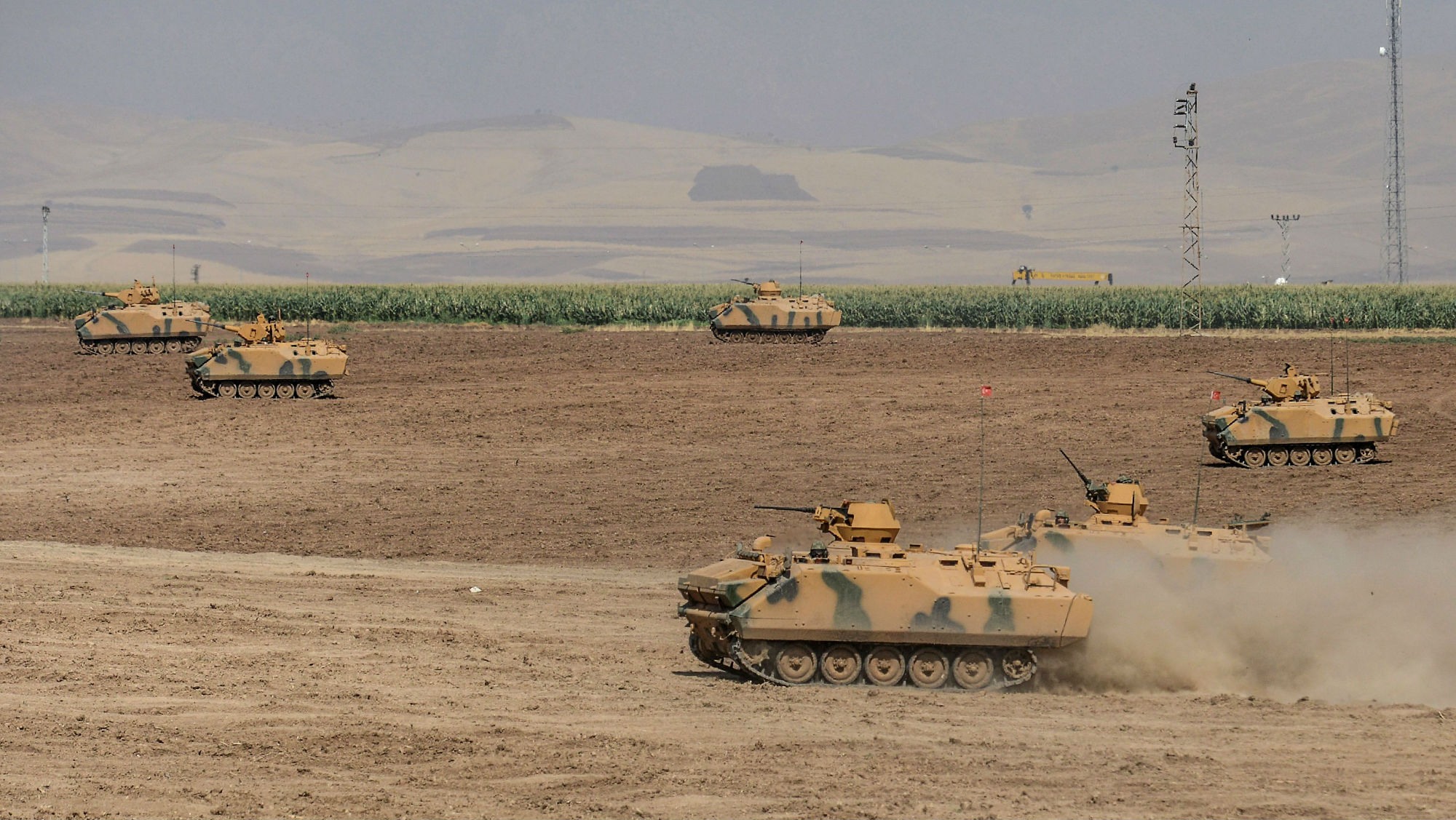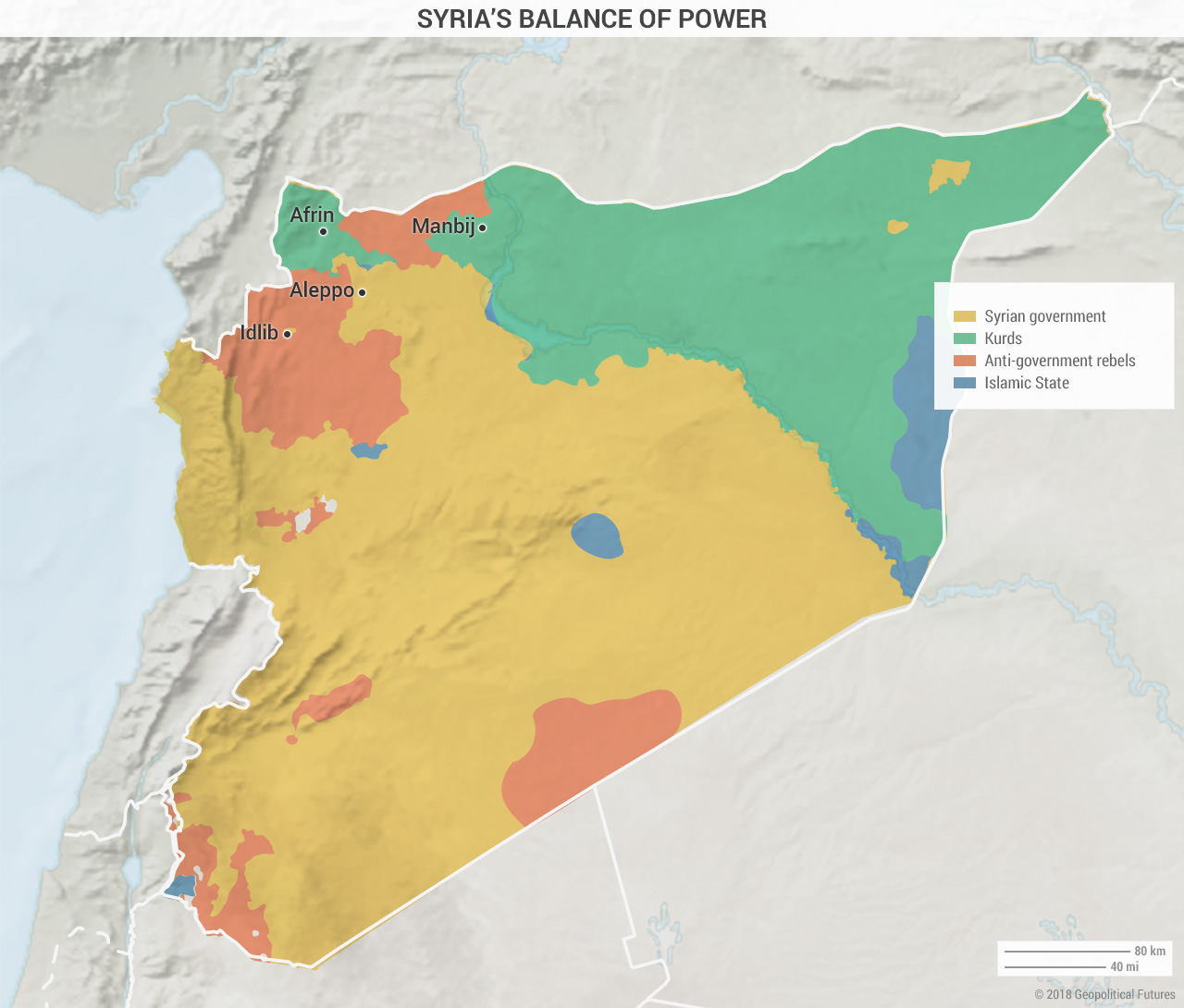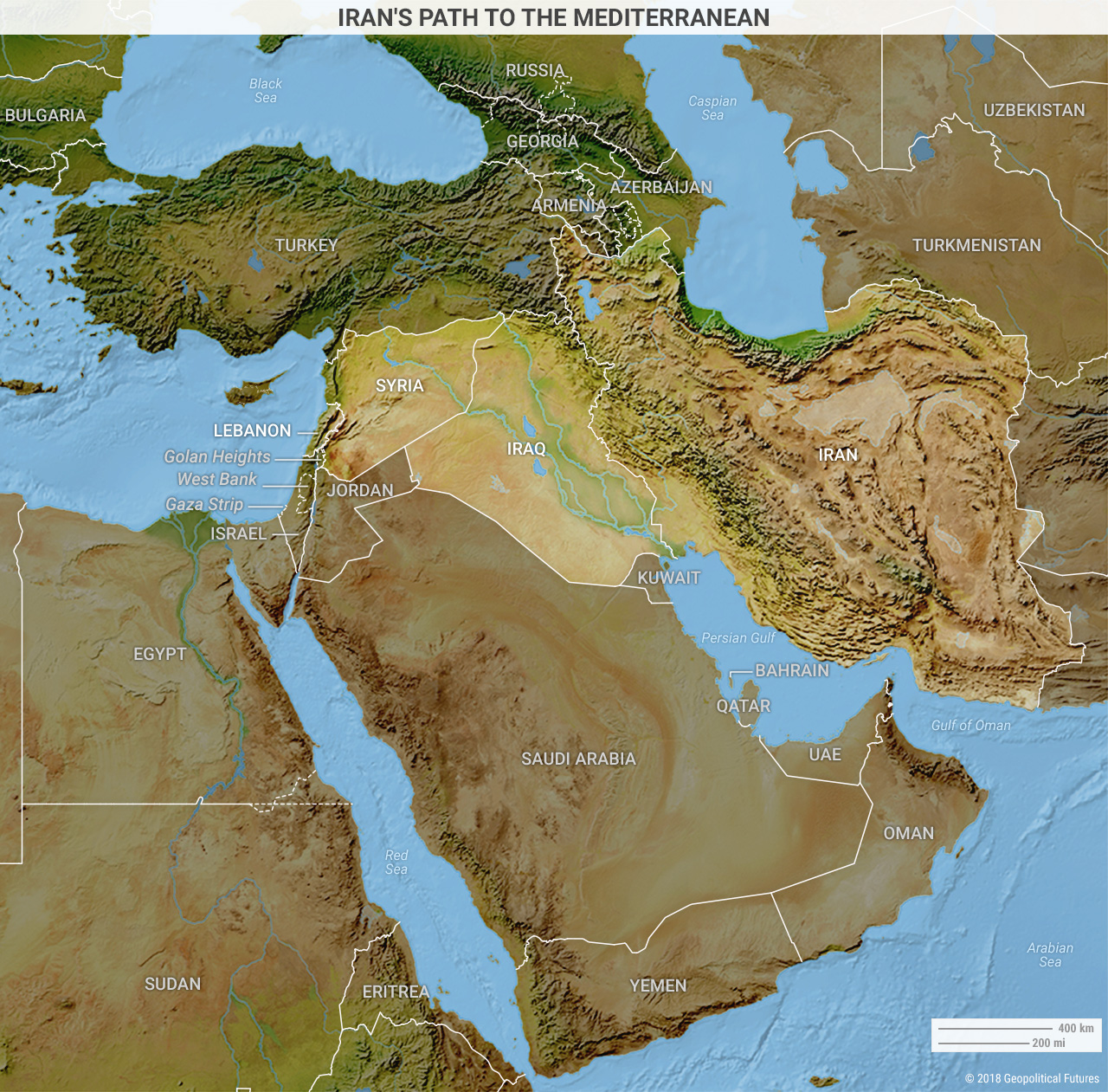By Jacob L. Shapiro
Over the weekend, Turkey commenced Operation Olive Branch in a small part of northwestern Syria called Afrin. The outcome of the incursion should not create much suspense: Turkey will conquer Afrin with relative ease. The importance of Turkey’s incursion lies instead in the challenges it poses to relations between Turkey and the three other foreign powers invested in Syria’s future: Russia, Iran and the United States. For the second time since 2011, Turkey has deployed its military in Syria from a position of weakness. It will shape the future of Syria from a position of strength.
Never in the field of human conflict has such a limited military operation been threatened for so long: Turkey warned of the invasion of the Syrian Kurdish region of Afrin for almost a year. Serious military operations are not announced via public relations campaigns because the element of surprise is crucial to achieving victory. One reason for Turkey’s bravado is that it doesn’t need the element of surprise to achieve victory in Afrin. The most generous estimates of enemy combatants in Afrin are around 10,000 fighters, lacking armor, artillery and air assets. Turkey has roughly 40,000 troops on the border with plenty of all three. The most serious impediment to Turkey’s invasion was the presence of a small number of Russian soldiers, but once Russia pulled those soldiers out, Afrin’s conquest was assured.
There is a second, more important reason for Turkey’s boisterous year of threats against Afrin: Turkey did not want to invade. It fears being dragged into a quagmire in Syria. When the Syrian civil war began, Turkey relied on proxies to bring down the Bashar Assad regime. When that failed, Turkey made amends with Russia and cosied up to Iran to secure its interests through diplomacy: the so-called Astana Troika. Turkey’s goal in agreeing to the cease-fire negotiated in Astana was to buy its proxies time to strengthen themselves and to prevent the Assad regime from reconquering the country. If Assad could not be defeated, then at least his regime, long hostile to Ankara, would not be allowed to return to its full strength, and at least outside powers would respect that Turkish wish.
All seemed to be going well from Turkey’s point of view until December, when the Assad regime – backed by Russia and Iran – undertook a major offensive in the Idlib de-escalation zone against anti-Assad rebels. The Assad regime said it was targeting jihadist groups like al-Qaida; Turkey claimed the regime was breaking the cease-fire and called for Russia and Iran to rein Assad in. (Both were technically right.) The Assad offensive forced Turkey’s hand. Had Turkey let the operation continue unabated, Assad would have destroyed the most powerful remaining rebel stronghold. Turkey had to show Assad and his foreign backers that there would be consequences if his forces did not stop.
Unsurprisingly, Assad’s government reacted harshly to Turkey’s announcement early last week that it planned to intervene in Afrin. The town of Afrin is roughly 23 miles (37 kilometers) from the outskirts of Syria’s most populous city, Aleppo. It is not a coincidence that Aleppo has seen the fiercest fighting of the war and that control of the city has changed hands multiple times. It is a vital population center, and before the war, it was the country’s largest industrial center. It is also a predominantly Sunni Arab city, which means its population tends to distrust Assad’s Alawite-dominated regime. The regime spent a great deal of blood reconquering the city, and the goal of its operations in Idlib province is to secure Aleppo from future attack.
Turkey’s intervention puts a major dent in that plan. Conquering Afrin means Turkey links up the two largest remaining rebel strongholds. That will make it easier for Turkish-backed anti-Assad groups to move supplies and materiel should they face additional attacks. But more distressing from the Assad regime’s point of view is that it puts Turkish military forces in prime position to support a new rebel offensive on Aleppo. The new threat north of Aleppo forces Assad to reconsider the offensive in Idlib and pull those forces back to ensure that he can defend against new rebel attacks. In effect, because Turkey could not convince Russia or Iran to control Assad’s fighters, it was forced to follow through on its threats. Being forced into a move you don’t want to make is not a symbol of strength but of weakness.
Victory, or the Appearance of It
Underscoring Turkey’s weakness is that the new Turkish military operation would not have been possible had Russia not given its tacit approval, which Turkey dispatched its chief of general staff and the chief of its National Intelligence Organization to Moscow on Jan. 18 to secure. Turkey asked Russia for two things in that meeting. The first was to withdraw its soldiers stationed in Afrin. Russia had dispatched soldiers to Afrin in June 2017 under the guise of a “Russian Center for Reconciliation.” The stated goal of this Russian military presence was to prevent fighting between Syrian Kurds and anti-Assad rebels in Afrin. The second thing Turkey asked was for Russia to allow the Turkish air force to use Syrian airspace to support its offensive. In this part of the country, Russia controls the skies – the Syrian air force has been decimated in the course of the war – and Turkey is not ready for a military confrontation with Russia.
Even though Russia’s Ministry of Defense confirmed the withdrawal of Russian soldiers from Afrin on Jan. 20, and even though Turkish air assets have conducted strikes on Afrin in recent days, Russia is not happy with this outcome. Russia would have preferred Turkey not undertake the operation because it weakens the Assad regime. It also makes Russian overtures to Syrian Kurds look meaningless, and this is a relationship Russia has cultivated in the hopes of creating yet another thorn in Turkey’s side going forward. Russia subordinated these interests, however, to its overall goal in Syria: victory, or at least the appearance of it. Russian President Vladimir Putin declared victory in Syria in December, and he needs something to show for it at home. For that, Putin needs Turkey, and for Turkey, Putin was willing to look the other way in Afrin.
Russia is hosting the Syrian National Dialogue Congress in Sochi on Jan. 29-30 that it has presented as integral to bringing the civil war to an end. For the congress to work, Russia needs all the combatants to come to the negotiating table and agree to stop fighting. Russia can bring Assad to heel. Turkey can do the same with the rebel groups in Idlib. In return for Russian approval of Operation Olive Branch, Turkey likely agreed to use its influence with non-Kurdish anti-Assad rebels to bring them to Sochi at the end of the month and to enforce their observance of whatever agreement is reached there. This is what enabled Russia to announce that it had agreed with Iran and Turkey on the final list of participants in the congress the day after Turkey began its military operations in Afrin.
There is a secondary Russian consideration to keep in mind. In the long term, Russia views Turkey as an enemy. (Turkey sees things the same way.) Turkey is not just an enemy to Russia’s interests in the Middle East; it is also an enemy in the Balkans, the Black Sea and the Caucasus, more consequential areas of Russian interest by far. This is one of the reasons it is so important for Russia to preserve the Assad regime. By preserving the Assad regime, Russia preserves an enemy of Turkey. The more concerned Turkey is with events on its southern border, the less bandwidth Turkey has to be concerned with other areas in Russia’s sphere of influence. Russia would prefer Turkey not deploy its military anywhere, but if Turkey is going to flex its muscle, let it be in Syria, not elsewhere.
Ambitions Without Leverage
The two powers without much say in this situation are Iran and the United States. Iran, like Russia, wants to see a full resurrection of the Assad regime, but for very different reasons. Russia wants Assad to survive for domestic consumption in Russia and for power balancing in the region once it withdraws its forces. Iran, meanwhile, has ambitions to dominate the region. To do that, Iran needs allies in a region where Iranian allies are hard to come by, for both sectarian and ethnic reasons. The importance of a pro-Iranian government in Syria for Iran’s overall strategy cannot be overstated. Syria is the bridge connecting Iran to the Mediterranean. If Iran loses Syria, it loses its ability to project power in the Levant and to support its proxies, like Hezbollah.
In this sense, Iran has already achieved its most basic need. A full resurrection of the Assad regime is desired but not necessary; Iran can settle for partial resurrection as long as that includes access to Lebanon and, by extension, the Mediterranean. From Iran’s perspective, the defeat of the Islamic State and the continued offensive of Assad regime forces in Idlib were both necessary for that access to remain unimpeded. A rehabilitation of IS or a failure in Idlib would jeopardize the Assad regime’s security and, in turn, Iran’s regional ambitions. Iran opposes Turkey’s move in Afrin because of the serious long-term threat it poses to Assad. If Turkey and its proxies can threaten Aleppo, they can threaten the Alawite coastal enclaves, and perhaps even cut off Iran’s unbridled access to the Mediterranean.
Iran likely attempted to get Turkey to call the operation off: When Iran’s deputy foreign minister went to Moscow earlier on the same day that Turkey announced the commencement of its Afrin engagement, he was probably petitioning Russia to try to convince Turkey not to proceed with the operation. The problem for Iran is that it had no leverage over Turkey when it comes to Afrin. There are no Iranian soldiers stationed in Afrin. In addition, Iran’s contribution to Assad has come in the form of ground forces. Iran’s air force is limited, and its domestic missile development program is still relatively unsophisticated. Turkey did not fear any potential Iranian retaliation against its moves; from Turkey’s point of view, Iran was part of the reason Turkey was forced to act in the first place.
Iran also didn’t have any leverage over Russia to get Moscow to protest Ankara’s moves more vigorously. Russia, while not happy about Turkey’s intervention, calculated that it was better to trade Afrin for Turkish compliance in the diplomatic realm than to confront Turkey over so small a territory, a territory over which Turkey could exert control whenever it chose – not unlike Russia and its move in Crimea. Iran’s need to see the Assad regime survive means Iran still depends on Russian support for the Assad regime. Russia’s air campaign in Syria was limited, but even so, if Russia packed up its fighters and bombers tomorrow, it would greatly weaken Assad’s forces. Iran does not have the capability to fill the gap should that happen, and therefore it must go along with Russia’s decision not to resist Turkey’s move in Afrin.
The Expanding Mission
And then of course there is the United States, which has been sending mixed signals to Turkey from the start. The U.S. armed Syrian Kurdish groups and then stopped arming Syrian Kurdish groups. The U.S. said it would not defend Syrian Kurds in Afrin, basically giving Turkey a green light to invade, and then condemned Turkey’s aggression. The U.S. has repeatedly voiced its desire for Turkey to take a more active role in managing the Syrian civil war, but it has also criticized Turkey for the jihadist company it prefers to keep in Syria, which has at least something to do with the U.S. fantasy that a secular, liberal democratic Arab force is just waiting to be discovered in the Syrian countryside.
One thing Iran, Turkey and Russia can all agree on is that they would like to see U.S. forces withdrawn from Syria. That is why even amid the serious strategic divergences among the Astana Troika, the three countries have remained constant in their criticism of the United States. Turkey views continued U.S. support of the Kurdish-dominated Syrian Democratic Forces as tantamount to support of its Kurdish separatists at home. Iran views the U.S. presence on the ground in Syria and hostility toward the Assad regime as a threat to its interests. Russia doesn’t much care about the presence of U.S. forces but benefits from the continuous blows to U.S. prestige and the distrust of the U.S. shared by the members of the shaky alliance among Russia, Turkey and Iran.
U.S. involvement began in Syria for one reason: to defeat the Islamic State. The U.S. remains concerned about the potential for an Islamic State resurgence, but it now has two additional interests. The first is to prevent Iran from realizing its regional ambitions. From the U.S. perspective, one of the unintended consequences of the partnership with Iran in fighting IS was that it greatly strengthened Iran’s position. The U.S. therefore is concerned with ensuring Iran’s position is sufficiently curtailed. The second additional interest is that the U.S. does not want to trade one Islamic caliphate for another. The strongest anti-Assad groups are, for the most part, various shades of jihadist. Syria’s branch of al-Qaida is one of the strongest and has a cooperative relationship with Turkey. This has led the U.S. to support Syrian Kurdish groups, and to the present hostility with Turkey.
It is a hostility that will not dissipate anytime soon. Until now, Turkey has mostly sought to realize its strategic interests in Syria indirectly. The failure of that strategy has necessitated Turkey’s intervention in Afrin. This creates something of a paradox. Turkey intervened in Afrin because it was not strong enough to get outside powers to respect its interests. In the long term, however, Turkey is better positioned than Iran, Russia or the U.S. to assert power in Syria. It is the only one of the four countries that is also predominantly Sunni, and it is the only one with a history of direct rule of this region. The invasion of Afrin is part warning and part foreshadowing to those who stand in Turkey’s way: Turkey’s idle threats are idle no more.










